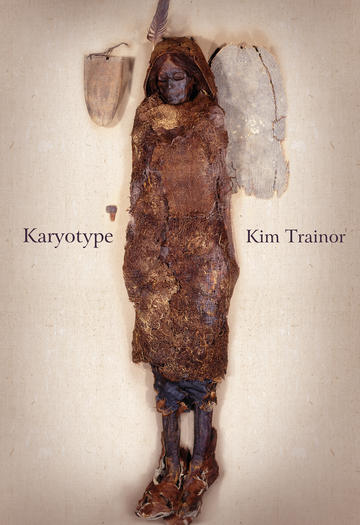A remarkable debut that expresses a humanism grounded in physiology.
At the heart of Karyotype is the Beauty of Loulan, a woman who lived four thousand years ago, her body preserved in the cool, dry sands of the Taklamakan Desert. Karyotype's poems range from the title sequence, which explores the DNA and woven textiles of this woman and her vanished people (a karyotype is the characteristic chromosome complement of a species), to the firebombing of the National Library of Sarajevo, from an abecedarian hymn on the International Red Cross "Book of Belongings" to the experience of watching the televised invasion of Iraq in the dark of a Montreal night. The Beauty of Loulan becomes a symbol of the ephemerality of human genetic and cultural texts, and of our chances for survival.
And then there was Liu Baiqiang
sentenced to 18 years for "Counter-Revolutionary Incitement"
who attached words to the legs of locusts
Tyranny! Long Live Freedom!
and flung them over the walls
of his prison, into the air.
— from "On the ordering of chaotic bodies of poetry"
"Karyotype is for me a crucial text in the work of re-imagining what it is to be human? I am grateful, as well as inspired, to find an artwork performing this essential task." — Don McKay
Kim Trainor began writing poetry in the spring of 2009. Over the years she has worked at a campus radio station, the Department of Fisheries and Oceans, a biomedical library, and is currently a sessional lecturer at UBC and Douglas College. Her poetry has won The Fiddlhead's Gustafson Prize and The Malahat Review Long Poem Prize, as well as appearing in the 2013 Global Poetry Anthology and The Best Canadian Poetry in English 2014. She lives in Vancouver.



